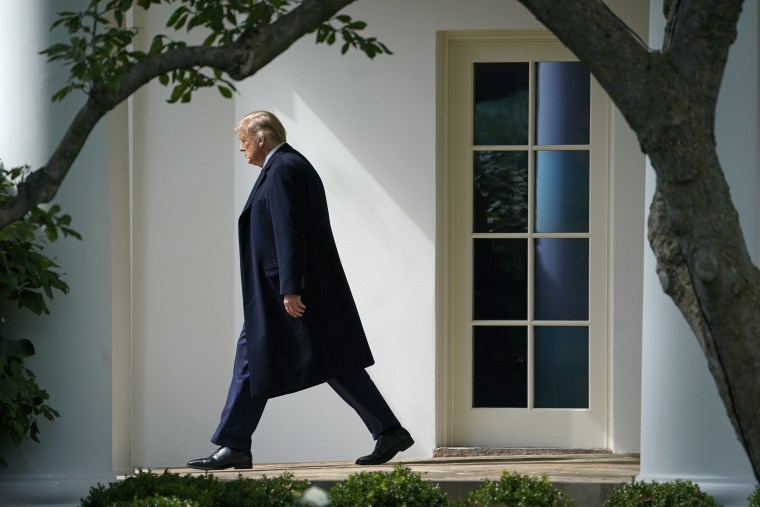Andrew McCabe, the former deputy director of the FBI, and David Williams, the former inspector general for five federal agencies, wrote a joint op-ed for Politico raising a provocative point about last week's deadly insurrectionist attack on the U.S. Capitol: Donald Trump may face charges.
If the federal investigation into the deaths determines that those responsible were incited to violence at the Save America rally that occurred just hours before, President Donald Trump could face criminal charges, even if he didn't storm the Capitol himself. The federal criminal code (18 USC 373) makes it a crime to solicit, command, induce or "endeavor to persuade" another person to commit a felony that includes the threat or use of physical force. Simply put, it is a crime to persuade another person, or a mob of several thousand, to commit a violent felony.
They're not the only ones thinking along these lines. The Washington Post reported late last week that Trump's own legal advisers "expressed increasing concern Friday about possible criminal liability in the wake of Wednesday's melee." The article added that Trump "has been told by attorneys that he could face legal jeopardy for inciting a mob."
For the better part of the last four years, the issue has been difficult to avoid: Trump keeps taking actions that appears to be at odds with the law, while legal experts debate the complexity and propriety of prosecuting a sitting president.
But as Trump prepares to leave the White House next week, there's nothing academic about the conversation. There's a list of possible offenses that would keep Trump's defense attorneys busy, and it isn't short.
Indeed, about a week after Joe Biden was declared the winner of the 2020 race, the New York Times Magazine published a lengthy report on Individual 1 -- let's not forget that Trump is already an unindicted co-conspirator -- and the Republican's "potential criminal liability."
Among the trouble areas: Trump's alleged financial crimes, alleged campaign-finance-law violations, alleged obstruction of justice, and alleged public corruption. Now, evidently, we can perhaps add an entirely new category: inciting an insurrectionist attack on his own country's Capitol.
Yes, there's been ample talk about Trump issuing a self-pardon before leaving office, but more than a few legal experts have questioned whether such a tactic would withstand scrutiny. It also raises questions anew about whether he might try to strike some sort of deal with Vice President Mike Pence -- presumably, this would mean Trump would have to stop giving Pence the silent treatment -- in which Trump would agree to end his term prematurely in exchange for a promised pardon from his Republican successor.
I'm skeptical that this will happen, but it's a safe bet that after every conversation with his lawyers, this is on Trump's mind.
* Postscript: Some of the potential charges involve state crimes, for which a presidential pardon would be no use.
